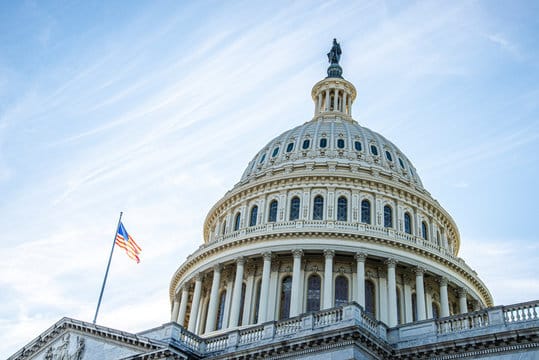Congress Overturns IRS Crypto Rules, Boosting Digital Asset Innovation

In a significant victory for the cryptocurrency industry, Congress has taken decisive action to dismantle controversial IRS regulations that many feared were choking the growth of digital assets in the United States.
On March 11, 2025, the U.S. House of Representatives passed H.J. Res. 25, a resolution aimed at scrapping the previous administration’s “Broker Rule.” This move comes hot on the heels of the Senate’s approval of S.J. Res. 28 on March 5, signaling a unified push to roll back policies seen as overly restrictive. The decision has sparked widespread optimism among lawmakers and industry advocates who argue that the now-defunct rule was driving innovation overseas while saddling American businesses with unnecessary red tape.
The IRS regulation in question required certain brokers, including decentralized finance platforms, to report detailed transaction information, a mandate critics slammed as both impractical and excessive. Lawmakers supporting the resolution emphasized that the compliance costs tied to this rule were not only burdensome but also risked undermining the country’s position as a leader in the fast-evolving digital asset space.
House Financial Services Committee Chairman French Hill, a Republican from Arkansas, didn’t mince words when praising the outcome. He called the Broker Rule a textbook case of government overreach, one that threatened to push cutting-edge development beyond U.S. borders. Hill expressed pride in voting to protect America’s dominance in the cryptocurrency ecosystem, framing the decision as a rejection of what he termed “anti-innovation midnight rulemaking.”
Stay In The Loop and Never Miss Important Crypto News
Sign up and be the first to know when we publishA Call for Bipartisan Clarity
Beyond the immediate repeal, Hill highlighted a broader goal of refining how digital assets are regulated. He stressed the importance of working across party lines to align reporting requirements from the Infrastructure Investment and Jobs Act with the realities of modern technology.
The aim, he noted, is to deliver legal and regulatory clarity that allows entrepreneurs and emerging technologies to thrive domestically. This sentiment was echoed by House Republican Conference Chairwoman Lisa McClain of Michigan, who celebrated the vote as a step toward reducing bureaucratic hurdles. McClain underscored that easing such restrictions would not only spur innovation but also enhance America’s competitive edge on the global stage.
The resolution now awaits the signature of President Donald Trump to become law, a formality that seems likely given the White House’s vocal backing of the measure. This aligns with the administration’s broader agenda of loosening regulatory constraints to foster growth in the digital asset sector. For many in the industry, this congressional action marks a turning point, offering a lifeline to businesses that have struggled under the weight of the IRS’s previous framework. It also sends a clear message that the United States intends to remain a hub for blockchain and cryptocurrency advancements.

